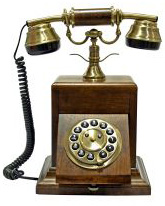 He wasn’t like some other men who moan and protest the very idea of shopping with their wives. He wouldn’t throw small tantrums at the idea of spending money on beauty, belts, and blouses. He enjoyed strolling around the city streets, feeling the sun warm the concrete, watching the wild array of people and their interactions with the world. But as soon as he would step into a small boutique and close the door behind him, the tinkling of little bells on the door handle was like a Pavlovian cue to feel a different sort of anxiety beyond spending money. For the walls seemed to close in on both him and those sad, tragic characters looking up from their registers, smiling and greeting him with: Hello, is there anything I can help you with today?
He wasn’t like some other men who moan and protest the very idea of shopping with their wives. He wouldn’t throw small tantrums at the idea of spending money on beauty, belts, and blouses. He enjoyed strolling around the city streets, feeling the sun warm the concrete, watching the wild array of people and their interactions with the world. But as soon as he would step into a small boutique and close the door behind him, the tinkling of little bells on the door handle was like a Pavlovian cue to feel a different sort of anxiety beyond spending money. For the walls seemed to close in on both him and those sad, tragic characters looking up from their registers, smiling and greeting him with: Hello, is there anything I can help you with today?
It was a lovely Saturday in the spring, and hope was budding on every tree limb as he found himself walking from store to store with his wife. They must have been to at least thirty stores already and he had not spent a dollar. A pair of jeans hanging in the display window of a small store caught his wife’s eye, and she tugged his elbow towards the door. As they entered the small shop a thin, middle-aged man with a receding hairline emerged from the back. There was no one else in the store. Eerie pop music emanated from speakers perched near the ceiling. Everything is fifty percent off this week, he said with a desperate grin.
They walked around the store, his wife pulling on shirtsleeves and holding up jeans for imagining. “Do you like this?” she asked him, while both she and the expectant shopkeeper awaited his inevitable shoulder shrug.
“Looks good,” he answered, but somehow his wife knew the many inflections of those two words and put the jeans back on the rack. The shopkeeper quickly procured three alternative pairs of jeans to evaluate. He looked sincere in his quest to please. Did he have a family? Three kids in college? A mortgage and a sick mother? Had this dream of running his own store turned into an imprisonment? Would his front window be shuttered within a week as the vultures of bankruptcy fed on his store’s fetid collapse? Were they as shoppers vultures too, making him dance for their disinterested fancy, juggling his blue jeans on sale for fifty percent off?
Yet he knew it was a conceit to pity the entrepreneurial shop owner. Undoubtedly some were doing quite well, supporting themselves or their families, even planning expansions and expensive trips on the money they were making. Yet the hundreds of small rejections that accumulate during a day of shopping were enough to dishearten him. He wished he could buy each small store’s entire inventory, delighting the shopkeeper if just for a day. If only his wallet were a fountain of milk and honey that flowed to all those who struggled, from this store to the artists in the park, to the coffeehouse on the corner, to the rare bookstore down the street, onwards and into the mouths and souls of every struggling being in the world.
“No thank you,” he heard his wife say. “They are very nice, but not quite what I’m looking for.” The shopkeeper pursed his lips and thanked her. They left the store without buying anything, never to see the middle-aged man with the receding hairline again.
Thank you for stopping in. Have a great day.
The heartache was becoming unbearable. “How much more shopping are we doing today?” he asked his wife. She feigned not hearing him as she pushed on to the next store, this one selling shoes and as empty as the last. The familiar bells on the door handle jingled, and a fresh wave of dread ushered him into the space. There were three women staffing the store, one straightening the shoes to perfection, another typing something into a computer, and the last one simply watching the door. All three chimed in to say hello and welcome.
His wife quickly ran through the inventory and found nothing of interest. He meanwhile was standing awkwardly in the middle of the store, his arms crossed behind his back, with morbid fantasies of single motherhood and a sad awareness of scarcity and human frailty overcoming him. He was about to excuse himself to wait outside the store when his wife pointed out a pair of leather sandals. “Do you like these?” she asked. He did. Sincerely.
He touched the leather and found himself admiring the construction. Before he could start pitying all the menial labor that had brought these shoes from the skin of a cow through some southeast Asian factory to this urban showroom one of the saleswomen was bringing him several sizes to try on. He felt terrible about life’s necessary consumption. He felt embarrassed about his own arrogance, the conceit that he should pity others or himself for our common struggles. But these sandals were feeling damn good on his feet. The saleswoman was smiling upon seeing his satisfaction.
Shall I ring them up for you? she asked.
“Yes. In fact I’ll wear them out of the store if that’s okay,” he replied. There was an exchange of money, with human hands touching and pleasant smiles traded as a scrap of manna from heaven flowed through the store. The bells on the door rang lightly, sounding both distant and near as they exited.
He was exhausted, and his heart could take no more.
He and his wife headed off towards home. She bought a few books at the bookstore and a bottle of wine along the way. She thought his brooding about the heartache of shopping was a little bizarre, which it was. As he walked down the concrete streets he marveled at how the earth felt padded in soft leather. The sandals were good things.
Perhaps the shopkeeper was a kind of artist – performing, taking risks, displaying the necessary truth of our consumptive existence, and capturing something human, unspeakable, pleasurable, and timeless in the art of the exchange.
Or maybe it was just finiteness that broke his heart, and shopping laid it bare.
Ad: scrubs coupon








